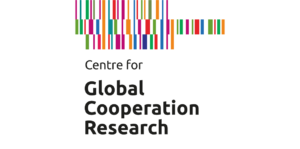
Two events in July
Border Violence: The Case of Melilla
Borders are spaces intrinsically invested with a high concentration of state violence or its threat. This constitutive sovereign violence, however, remains mostly hidden and is not actualised through regular border checks. A talk by Dr. Estela Schindel aims at unpacking the citizenship contract that occludes the open deployment of violence, and exposing the ways in which the EU southern borders are, instead, spaces where overlapping forms of violence unfold.
The online lecture takes place on 6 July 2021 (18:30–20:00, CEST). The talk is based on secondary literature and on interviews and observations carried out in Melilla and Nador during a research stay in 2017. Dr. Estela Schindel is Associate Professor and Academic Coordinator of the Viadrina Institute for European Studies (IFES), Europa-Universität Viadrina Frankfurt (Oder).
KHK organises SASE Annual Meeting
The KHK / Centre for Global Cooperation, in cooperation with the Institute for Work, Skills and Training (IAQ) and the Deutsches Institut für Interdisziplinäre Sozialpolitikforschung (DIFIS) at the University Duisburg-Essen, is this year’s official virtual organiser of the Annual Meeting of the Society for the Advancement of Socio-Economics (SASE) from 2-5 July 2021.
At the conference, KHK Managing Director Sigrid Quack will conclude her one-year Presidency of the Society with a keynote address on “The Pandemic – A historical conjuncture and what we can learn from it for institutional theory”. KHK fellows and researchers will present current work in panel discussions on Imaging Pathways for Global Cooperation; Polycentricsm: How Governance works today; and Digital Governance from a Polycentric Perspective.
Learn more about the conference
Personalia
Venia Legendi for Frank Gadinger
Research Group Leader Frank Gadinger, a member of the Centre’s scientific leadership since its foundation in 2012, successfully completed his habilitation process with a lecture on “Donald Trump’s presidency: isolated case or symptom of crisis in liberal democracy?” at the Institute for Political Science, Faculty of Social Sciences, University of Duisburg-Essen.
Schreibe einen Kommentar